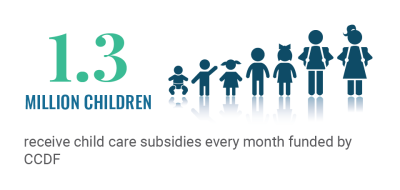EDUCATION
Navigating the World of Legal Entity Identifier: A Beginner’s Guide

A Legal Entity Identifier (LEI) is a unique alphanumeric code designed to standardise and streamline the identification of legal entities involved in financial transactions. Originating from a global initiative aimed at enhancing risk management and transparency in financial markets, LEIs have become an essential tool for regulatory reporting and compliance. By providing a universal reference to a legal entity’s identity, an LEI supports authorities in tracking financial connections, mitigating systemic risks, and fostering a more transparent global economic framework. Embracing LEIs not only boosts operational efficiencies but also builds trust among market participants, promoting stability and coherence in the financial ecosystem.
An essential aspect of understanding the concept of Legal Entity Identifier (LEI) codes is recognising their critical role in the broader financial landscape. The LEI functions as a pivotal identifier that streamlines the categorisation and clarity of legal entities in the financial domain. Core features of an LEI code include its 20-character alphanumeric structure, which is designed as a robust, non-changing identifier linking to essential business card information, such as the name and address of the legal entity. This unique identifier enables smoother operational processes, helps in deterring fraudulent activities, and aids in risk management for regulatory purposes. By simplifying identity verification in financial transactions, LEIs eliminate ambiguities, thus enhancing trust and transparency among financial market participants.
The value of implementing LEI codes extends far beyond mere identification. Utilising LEI codes fosters greater integration within the global regulatory framework, ensuring more seamless compliance with international financial reporting standards. Additionally, these identifiers help financial institutions streamline internal record-keeping and reporting functions, ultimately improving operational efficiency. The systematic use of LEIs by different entities, such as banks, investment firms, and corporations, underscores their indispensable function in today’s increasingly interconnected financial world. To understand more about who should possess an LEI code, explore Leiservice Australia, where you can access affordable options for new and renewed LEI registrations, supporting your compliance and operational requirements seamlessly.
Creating a buyer’s guide for Legal Entity Identifier (LEI) codes involves highlighting key considerations, selecting the right option, and offering tips to maximise their benefits. Here’s a comprehensive guide to help you navigate this process:
Key Considerations
- Purpose of LEI Code: Understand why your organisation needs an LEI. Common reasons include regulatory compliance, enhancing risk management, and improving transparency in financial transactions.
- Reputation of Registration Agents: Choose a reputable Local Operating Unit (LOU) or registration agent. Look for their registration history, customer reviews, and affiliations with global regulators.
- Cost-Effectiveness: Evaluate the cost of obtaining and renewing an LEI code. Prices can vary, so compare providers to ensure competitive pricing without compromising on service quality.
- Renewal Processes: LEIs are valid for one year from registration. Consider the ease of the renewal process. Some providers offer automatic renewals, which can save time and reduce administrative burdens.
- Data Accuracy and Management: Ensure that the provider maintains accurate and up-to-date information about your entity. This is crucial for maintaining compliance and ensuring the reliability of your LEI code.
How to Choose the Right LEI Code Provider
- Registration and Renewal Support: Opt for providers that offer comprehensive support both during the registration process and throughout the lifecycle of the LEI code. This includes reminders for renewals and assistance with any updates needed.
- Customer Service: Assess the level of customer service offered. Reliable providers will have a strong support system to address any queries or issues promptly.
- Global Coverage: If your organisation operates internationally, select a provider with a global reach to facilitate consistency across jurisdictions.
- Transparency in Process: Choose a provider that offers clear and transparent processes for both registration and renewal, minimising any hidden costs or complex procedures.
Tips for Maximising the Benefits of LEI Codes
- Regular Updates: Ensure that your entity’s details are consistently updated in the LEI database to reflect any changes in your organisation’s structure or contact details.
- Integrate LEI Data: Use LEI data for enhancing internal reporting and compliance systems. Integration with financial management and reporting tools can streamline your operations.
- Embrace Automation: Leverage automation tools provided by your LEI service provider to handle renewals and data updates more efficiently, reducing the risk of lapses in compliance.
- Network with Other LEI Holders: Engage with other entities in your industry that utilise LEIs. Peer support and information exchange can be valuable for staying informed on best practices and regulatory updates.
By understanding these factors, selecting a dependable provider, and effectively managing your LEI code, you can ensure your organisation fully capitalises on the advantages of having a robust legal entity identifier.
5 Expert Tips for Maximising the Legal Entity Identifier Advantage
Navigating the intricate world of legal entity identifiers (LEIs) requires strategic vision and practical steps. LEIs not only bolster regulatory compliance but also sharpen your business’s operational edge. Here are five expert tips to ensure your LEI strategy is both effective and future-proof.
1. Prioritise Data Accuracy
Ensuring the accuracy of your LEI data is non-negotiable. Accurate information guarantees compliance and enhances reputation.
- Perform regular audits of your entity’s reported data.
- Establish a protocol for immediate updates following any organisational change.
- Use automated tools to manage data input and verification.
2. Leverage Integration Opportunities
Integrating LEI data into your existing systems can uncover new efficiencies and insights.
- Link LEI data to financial management and reporting systems.
- Explore integration with supply chain and compliance software.
- Assess potential cross-departmental applications to enhance collaboration.
3. Streamline Renewal Processes
Efficient renewal processes are crucial in maintaining your LEI’s active status.
- Automate renewal reminders and processes as much as possible.
- Choose an LEI provider that offers streamlined renewal services.
- Delegate renewal tasks to dedicated teams to ensure accountability.
4. Engage in Industry Collaboration
Participating in industry networks can boost your understanding and usage of LEIs.
- Join industry forums or groups focused on LEI applications.
- Attend webinars and events dedicated to regulatory compliance.
- Share insights and challenges with peers to foster learning and innovation.
5. Stay Ahead with Regulatory Changes
Regulatory landscapes evolve, and staying informed about changes ensures sustained compliance.
- Subscribe to relevant industry and regulatory updates.
- Engage with legal advisors familiar with international LEI regulations.
- Regularly review compliance strategies to adapt to new requirements.
By implementing these tactics, your organisation can unlock significant benefits from its legal entity identifier, ensuring you’re not only compliant but also strategically positioned for growth.
Conclusion: Embracing the Future with LEI
Navigating the world of legal entity identifiers may seem complex at first, but with the right strategies in place, your organisation can effectively leverage their potential. By prioritising data accuracy, exploring integration opportunities, streamlining renewal processes, engaging in industry collaboration, and staying ahead of regulatory changes, you establish a robust framework for success. Adopting a proactive approach and maintaining an agile mindset ensures that your entity not only stays compliant but is also positioned to seize emerging opportunities on the global stage. As the financial landscape continues to evolve, embracing the capabilities of LEIs will undoubtedly play a vital role in shaping the future of your organisation’s growth and innovation.
Frequently Asked Questions about Legal Entity Identifier
Navigating the complexities of legal entity identifiers can prompt various questions and concerns.
What is the process to obtain a Legal Entity Identifier?
To obtain a Legal Entity Identifier, an organisation must apply through an accredited Local Operating Unit (LOU), providing necessary documentation and information for verification. Once approved and the fee is paid, the LEI is issued.
Why do I need a Legal Entity Identifier?
A Legal Entity Identifier is mandatory for entities engaging in financial transactions in many jurisdictions, as it enhances transparency and trust by uniquely identifying parties to a contract in regulatory reporting systems.
How often do I need to renew my Legal Entity Identifier?
The LEI must be renewed annually to remain active. Renewal involves updating organisational information to ensure ongoing accuracy in regulatory reporting and compliance.
How secure is the information associated with my Legal Entity Identifier?
Information linked to an LEI is publicly accessible to promote transparency in financial transactions; however, sensitive details are protected under applicable data protection laws, ensuring security.
Can I use the same Legal Entity Identifier for multiple legal entities?
No, each legal entity, regardless of being part of a larger organisation, requires its own unique LEI to maintain accurate and distinct records in financial transactions.
What should I do if my Legal Entity Identifier is incorrect or outdated?
Ensure updates are made as soon as possible by contacting your LEI issuer to rectify inaccuracies, as this is critical for maintaining compliance and avoiding potential legal complications.
EDUCATION
The Evolution of Education in the Digital Era: A New Paradigm of Learning

Education, once confined to chalkboards, textbooks, and brick-and-mortar classrooms, is undergoing a radical transformation. With the rise of technology and access to information, the traditional model is giving way to a more dynamic, personalized, and global approach to learning.
From Static to Dynamic Learning
The old paradigm of education often revolved around memorization, standardized testing, and one-size-fits-all instruction. Today, learning has become more interactive and student-centered. Online platforms, virtual reality simulations, gamification, and AI tutors are reshaping how knowledge is delivered and absorbed. These tools adapt to individual learning styles, paces, and interests, making education more engaging and effective.
Accessibility and Equity
Perhaps the most profound shift is the breaking down of geographic and economic barriers. A student in a remote village can now access courses from top universities through MOOCs (Massive Open Online Courses). Mobile learning apps and open educational resources have democratized education, offering new opportunities to underserved communities. However, this also raises the question of the digital divide — the gap between those with internet access and digital literacy and those without.
Teachers as Facilitators, Not Sole Authorities
In this evolving landscape, the role of educators is also changing. Teachers are no longer just dispensers of knowledge; they are facilitators, mentors, and co-learners. Their focus is increasingly on critical thinking, creativity, emotional intelligence, and lifelong learning skills — competencies that matter more than ever in an unpredictable future.
The Rise of Lifelong Learning
The idea that education ends with graduation is fading fast. In a world where industries evolve rapidly and jobs are constantly redefined, lifelong learning has become essential. Micro-credentials, professional development courses, and informal learning communities enable individuals to continuously reskill and adapt.
Challenges and Considerations
Despite these advancements, there are still hurdles to overcome. Ensuring the quality of online education, maintaining student motivation in remote settings, addressing screen fatigue, and protecting student data are critical challenges. Moreover, educational institutions must balance innovation with inclusivity, ensuring no one is left behind.
Conclusion
Education in the digital age is not just about technology — it’s about reimagining the purpose and process of learning. It’s about empowering learners to think independently, collaborate globally, and adapt continuously. As we navigate this new era, the goal remains the same: to cultivate informed, curious, and capable individuals who can shape a better world.
EDUCATION
Engaging Storytelling Through Print: The Power and Impact of Booklets

Precise, portable, and tangible booklets encapsulate a unique charm of their own. Beyond merely presenting information, booklets can evoke nostalgia for a simpler time when print was king. When utilized effectively, they are artful mediums that communicate intricate information clearly and engagingly. The tactile appeal of booklets and thoughtful design can significantly impact how an audience absorbs and retains information. Indeed, the strategic use of booklets can amplify a message’s reach and efficacy, offering a sensory experience unmatched by digital media.
Through compelling storytelling and strategic use of visuals, booklets have become indispensable for businesses, educators, and non-profits looking to make a lasting impression. Their versatility allows for innovation in presentation, whether it’s an annual report, a product catalog, or a community health guide. From a compact guide in a conference swag bag to a detailed instructional booklet in a classroom, the versatility of this medium is unmatched. The opportunity to combine graphics with narratives ensures that booklets remain a key player in the arsenal of practical communication tools. They bridge the gap between mere information delivery and creative storytelling, making the reader actively participate in the experience.
Introduction to Booklets
While not a novel concept, booklets continue to provide unrivaled value by offering an engaging tactile experience. As a communication medium, they synthesize and present content in a format far removed from the fast-paced nature of digital media. In today’s digitally driven world, where screens dominate our attention, booklet printing offers a refreshing alternative to reconnect us with the tangible reading experience. Unlike fleeting digital ads and pop-ups that can easily be ignored, booklets demand attention, inviting engagement and interaction. The key to a successful brochure is its ability to condense information without diluting its essence, ensuring readers gain comprehensive insights at a glance. This approach makes booklets particularly effective for conveying detailed information succinctly and memorably. They create opportunities for deep focus and reflection, something increasingly rare in today’s fast information age.
The Art of Storytelling with Booklets
Storytelling is an art form used throughout history to captivate and educate audiences of all ages. Booklets leverage this timeless practice by weaving narratives that resonate emotionally and intellectually with their readers. This connection can transform mundane content into riveting stories that linger in the reader’s mind long after the booklet has been set aside. According to Harvard Business Review, a well-structured narrative engages and enhances comprehension and retention, making it an essential component of effective booklet design. Through narrative techniques, such as character development and conflict resolution, booklets can deliver informative and deeply personal messages.
Designing Engaging Booklets
The visual appeal of a booklet can be just as crucial as its content. Elements such as color schemes, typography, and layout are instrumental in shaping the reader’s journey through the material. Every visual choice can influence mood and perception, transforming the booklet from mere paper to an interactive artwork. Studies have indicated that visually appealing materials can increase the reader’s retention rate by up to 40%, showcasing the symbiotic relationship between design and comprehension. This underscores the importance of meticulously crafted design work that aligns with the booklet’s intended message, seamlessly guiding readers from start to finish. Effective booklet design can elevate storytelling to an art form by balancing aesthetics with functionality.
Understanding Reader Psychology
The ritual of holding and interacting with print materials profoundly impacts how information is processed. Engaging multiple senses increases the likelihood of memory formation and emotional retention. Research in cognitive psychology suggests that the physical interaction with printed text enhances memory and emotional engagement. As readers flip through the pages, the tactile experience adds depth and connection that is often missing in digital media, where distractions are abundant. Psychology Today notes that this tactile engagement is a significant factor in practical learning, offering texture and nuance to the reading experience that screens cannot replicate. Holding a booklet involves multi-sensory engagement, combining sight, touch, and even the subtle smell of printed paper, creating a more immersive and personal interaction. This method of engagement often leads to better comprehension and, in turn, can foster a stronger emotional connection to the material, making the content informative and experiential.
Case Studies: Successful Booklet Campaigns
Consider various successful campaigns that utilized booklets to magnificent effect worldwide. For instance, educational institutions that provide course prospectuses in booklet form can present detailed information in an organized and eye-catching way. These booklets inform and inspire potential students by providing a comprehensive overview of their expectations. Similarly, health organizations have succeeded with booklets by reaching community members with vital information through engaging layouts and clear messaging. These health booklets facilitate better understanding and compliance by simplifying complex medical data into digestible chunks. These case studies highlight the adaptability and efficacy of booklets across different contexts and audiences, demonstrating their timelessness and versatility.
Challenges and Solutions in Booklet Production
Despite their advantages, producing booklets presents challenges, such as budget constraints and the need for creative design solutions. High-quality design and printing are prohibitive for many organizations. However, digital advancements are paving the way for innovative solutions. Tools that allow for interactive design, paired with affordable print-on-demand services, have made it easier to overcome these hurdles. These technologies enable producers to generate high-quality booklets economically and efficiently, democratizing access to professional-grade materials. With these solutions, even small businesses and non-profits can effectively harness the power of booklets, proving that creativity and technology can align beautifully.
The Future of Booklets in a Digital World
In a rapidly evolving digital landscape, it might seem like print is losing its foothold. Yet, booklets are adapting by integrating digital elements, ensuring their continued relevance. Augmented reality features, QR codes, and digital tracking are just a few innovations enhancing traditional booklets. These hybrid strategies allow for interactive experiences bridging the print and digital gap, offering richer engagement possibilities. As their format evolves, booklets are well-positioned to provide rich, multi-dimensional experiences that complement the digital trend without sacrificing their traditional strengths. By embracing these advancements, print and digital can coexist harmoniously, enriching the communication landscape.
Conclusion
The power of booklets lies in their unique ability to marry content with aesthetics, engaging the reader intellectually and emotionally. In an increasingly digital world, booklets offer a rare moment of quiet reflection and focus, allowing messages to resonate more deeply. As technologies advance, the capacity for innovation within this medium expands, ensuring booklets remain a critical component of communication strategies. Consequently, they continue to be an effective tool in delivering impactful storytelling long into the future. As storytelling methods evolve, booklets will likely carve out an ever-more creative role, reinforcing the tangible benefits of print communication in a digital age.
EDUCATION
A Comprehensive Look at the Child Care Financial Assistance Program

Every parent or guardian wants the best for their children, particularly during the formative early years when the foundation for later learning and well-being is established. Quality childcare provides a structured environment where children can socialize and engage in early learning and supports parents who need to work or attend school. Unfortunately, childcare expenses can be steep, making it difficult for families to find the right balance between financial stability and their children’s developmental needs.
If you find yourself buried under the massive weight of childcare expenses, then a childcare financial assistance program might just be what you need. Designed to alleviate the financial pressures of childcare, these initiatives offer critical support and peace of mind for parents trying to balance work, education, and family life. In the following sections, we’ll explore everything from government-funded subsidies to tax credits and employer-based benefits because every parent deserves the chance to secure enriching, affordable care for their children, no matter the challenges that come with this incredible role.
Government-Funded Child Care Subsidies

One of the most significant steps toward easing the cost of childcare is government-supported financial assistance, sometimes referred to as vouchers or subsidies. These programs typically involve federal funds that are distributed to states and territories. The aim is to help low-income families offset the cost of approved childcare providers while parents work or attend an educational institution.
Each state or territory sets its own income guidelines, work or education requirements, and application procedures. For instance, families exploring financial assistance programs in Iowa often find accessible options that fit their needs. Generally, eligible families receive vouchers or certificates that they can use at authorized childcare centers, family childcare homes, or after-school programs. This system empowers parents to select a provider that aligns with their child’s needs and the family’s preferences. To get started, families should research their state’s specific guidelines to determine whether they meet the eligibility criteria.
Early Childhood Preparation through Head Start and Early Head Start

For decades, Head Start and Early Head Start have offered robust programs for children from birth to age five. These federally funded initiatives focus on early learning, social development, and health services to ensure that children are fully prepared for kindergarten and beyond. Families who meet the income requirements can enroll their children at no cost, making these programs especially beneficial for those facing economic challenges.
Beyond academic preparation, Head Start emphasizes comprehensive support, including services for mental well-being and physical health. Regular screenings, nutritious meals, and opportunities for parent involvement are key components of the program. Early Head Start, on the other hand, caters specifically to infants, toddlers, and pregnant women, offering in-home or center-based services that focus on nurturing the parent-child relationship. Parents or guardians interested in these free resources can look up local Head Start or Early Head Start sites through their state’s child development services page.
State-Funded Prekindergarten Options
Many states also sponsor prekindergarten programs geared toward children aged three to five. The main objective is to ensure school readiness by providing a structured curriculum that fosters literacy, social skills, and cognitive development. While some states offer free full-day programs to qualifying families, others charge sliding-scale fees or only provide part-time slots.
These state-funded prekindergarten classes often come with credentialed teachers specialized in early childhood education, ensuring that children get the most out of the critical years leading up to kindergarten. Families interested in these opportunities should check their state’s early learning resources to determine whether public prekindergarten is available in their area, what eligibility criteria are in place, and how to enroll.
Local Assistance, Provider Scholarships, and Discounts
Beyond federal and state programs, many local organizations and childcare providers offer their own forms of financial help. Some nonprofit groups award grants or scholarships to families who meet certain criteria, while others may have community-based sliding-scale fees. If you’re exploring local childcare options, don’t hesitate to ask individual providers whether they have any assistance programs in place.
Another popular strategy for lowering childcare costs is the sibling discount. Childcare facilities sometimes offer a reduced rate for the second or additional child, either by deducting a specific percentage from the weekly fee or waiving certain charges like the registration fee. This discount can significantly help larger families who are enrolled in the same program. Additionally, some civilian programs may extend discounts to military personnel, even if the family is not accessing an official military subsidy. When interviewing potential childcare centers, be sure to inquire about these cost-saving measures.
Leveraging Tax Credits and Refunds

Another powerful way to decrease childcare expenses is through federal tax credits, which can potentially lower the amount of tax owed or boost a family’s refund. Parents must file a tax return and meet the relevant requirements to claim these credits, even if they wouldn’t ordinarily file due to low or no taxable income.
The Child and Dependent Care Tax Credit is specifically designed to reimburse a portion of childcare costs if those expenses were necessary for the parent or guardian to work or look for work. Meanwhile, the Earned Income Tax Credit (EITC) supports families with low to moderate incomes by reducing the total tax they owe and possibly generating a refund in the process. Tax credits like these can put hundreds or even thousands of dollars back into a family’s budget over the course of a year.
If you’re unsure about how to claim these benefits, the IRS Volunteer Income Tax Assistance (VITA) program offers free tax preparation help for eligible individuals. Consulting a tax professional is also an excellent way to navigate these benefits correctly and maximize any potential refunds.
Conclusion
Raising a family in today’s world comes with its fair share of financial responsibilities, and childcare expenses can be one of the largest burdens. Fortunately, programs like the Child Care Financial Assistance subsidy, Head Start, Early Head Start, and state-funded prekindergarten are helping to lighten this load for many Americans. In addition, local providers often offer scholarships, sibling discounts, and other creative ways to reduce fees. Ultimately, the Child Care Financial Assistance Program and its various counterparts are designed to ensure that every child, regardless of economic status, can benefit from consistent, high-quality early education and care.
Every child deserves a strong start, and every family should have the opportunity to secure dependable, enriching care without feeling overwhelmed by costs. With the right combination of programs and resources, you can open doors for your child that lead to bright, healthy, and successful futures.
-

 NEWS2 months ago
NEWS2 months agoWhat is www.avstarnews.com and What Does It Offer?
-

 TECHNOLOGY7 months ago
TECHNOLOGY7 months agoGomyfinance Invest: Simplify Your Path to Financial Growth
-

 TECHNOLOGY2 months ago
TECHNOLOGY2 months agoAtfboru: A Creative Platform for Designers, Artists, and Entrepreneurs
-

 BUSINESS2 months ago
BUSINESS2 months ago.Ydesi: Exploring Its Significance and Applications
-

 CRYPTO5 months ago
CRYPTO5 months agoCrypto30x.com Gemini: Revolutionize Your Crypto Trading Experience
-

 NEWS1 year ago
NEWS1 year agoDogo News: The Latest Trends in the World of Dogo Argentino
-

 EDUCATION1 year ago
EDUCATION1 year agothe christian between the gospel and society
-

 ENTERTAINMENT1 year ago
ENTERTAINMENT1 year agoWWE SmackDown Episode 1491: Unforgettable Moments That Left Fans Roaring
